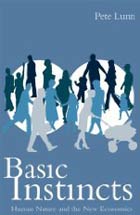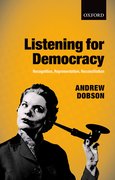
which is as one reviewer notes:
"A trained neuroscientist, Lunn came to economics late, bringing with him the psychologist's belief that the first step in understanding how people operate is to watch them behave. He was surprised to discover instead that economists found their theories on a set of assumptions - namely, that people are rational agents, with independent and well-defined goals, which they pursue with intelligence, selfishness and consistency." [Tom Clark, The Guardian, October 31, 2008].
Lunn writes in an easy, non-academic style as this engaging, more recent [2012] seven minute video talk 'How behavioural economics can be used for good - or ill' in Dublin, Ireland illuminates.
In the book, Lunn lays out many holes in the fundamental assumptions of neoliberal economics, and how the newer field of behavioral economics is identifying how people really act, not upon some mythology, but on observation of what people actually do. Lunn shares that there are at least six flaws that prevent the market from working as marketologists dream. Using the appropriate acronym MISLED those flaws are:
Mistakes
Information (lack of true)
Surprises - the unpredictable
Luck
Events
Dishonesty
Lunn's prose style reminds me much of physicist/author Leonard Mlodinow (Drunkard's Walk: How Randomness Rules Our Lives, and Subliminal: How Your Unconscious Mind Rules Your Behavior). Clear, humorous, self-deprecating and very insightful. I'm not done yet, so I'm hoping he ends with some 'possibilities' of how to use this new knowledge to reconfigure an economic system that is driving us to the brink... stay tuned..
The other books that have found there way home with me over the past week include:
Best Buddhist Writing of 2009 - (I've enjoyed the 2012 and 2011 versions very much and have read about half of these short pieces. They are just short, juicy morsels of reflections that help center one in a turbulent world).

No-Nonsense Guide to Fair Trade - I'm half way done with this newest in a series of mini-paperbacks published by the New Internationalist magazine that in 136 small pages gives history, development, and prognosis for the fair trade movement.

The Ascent of Humanity: Civilization and the Human Sense of Self - Charles Eisenstein' earlier work reissued. While a heavier tome in the number and size of the pages, Eisenstein's writing and insights are worth savoring. I've not yet started this one.

And three I picked out yesterday...
Andrew Dobson's Listening for Democracy - this newest from one of the leading political scientists [British] in the world and a leading proponent of an expanded idea of Citizenship aims at a topic I'm intrigued with -listening.

David D. Cooper's Learning in the Plural: Essays on the Humanities and Public Life - a compilations of a retired faculty member and colleague I knew at MSU who was concerned with the public good and the role of the university and scholars with it.

The Solidarity Economy Alternative: Emerging Theory and Practice - a collection of essays by those involved in the emergent 'solidarity economy from around the planet, mostly from Brazil and South Africa and the networks of solidarity being built from the grassroots up.


No comments:
Post a Comment